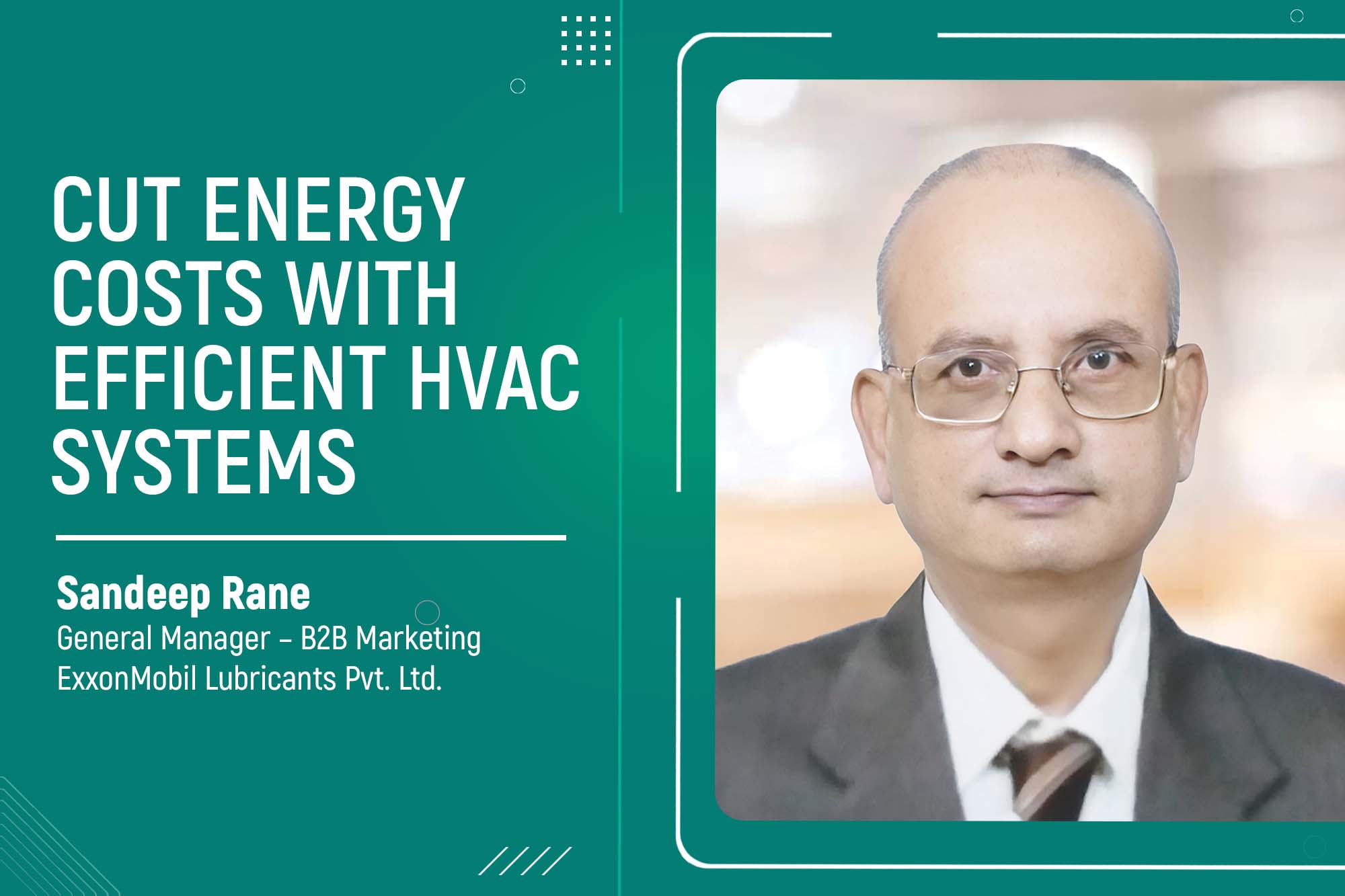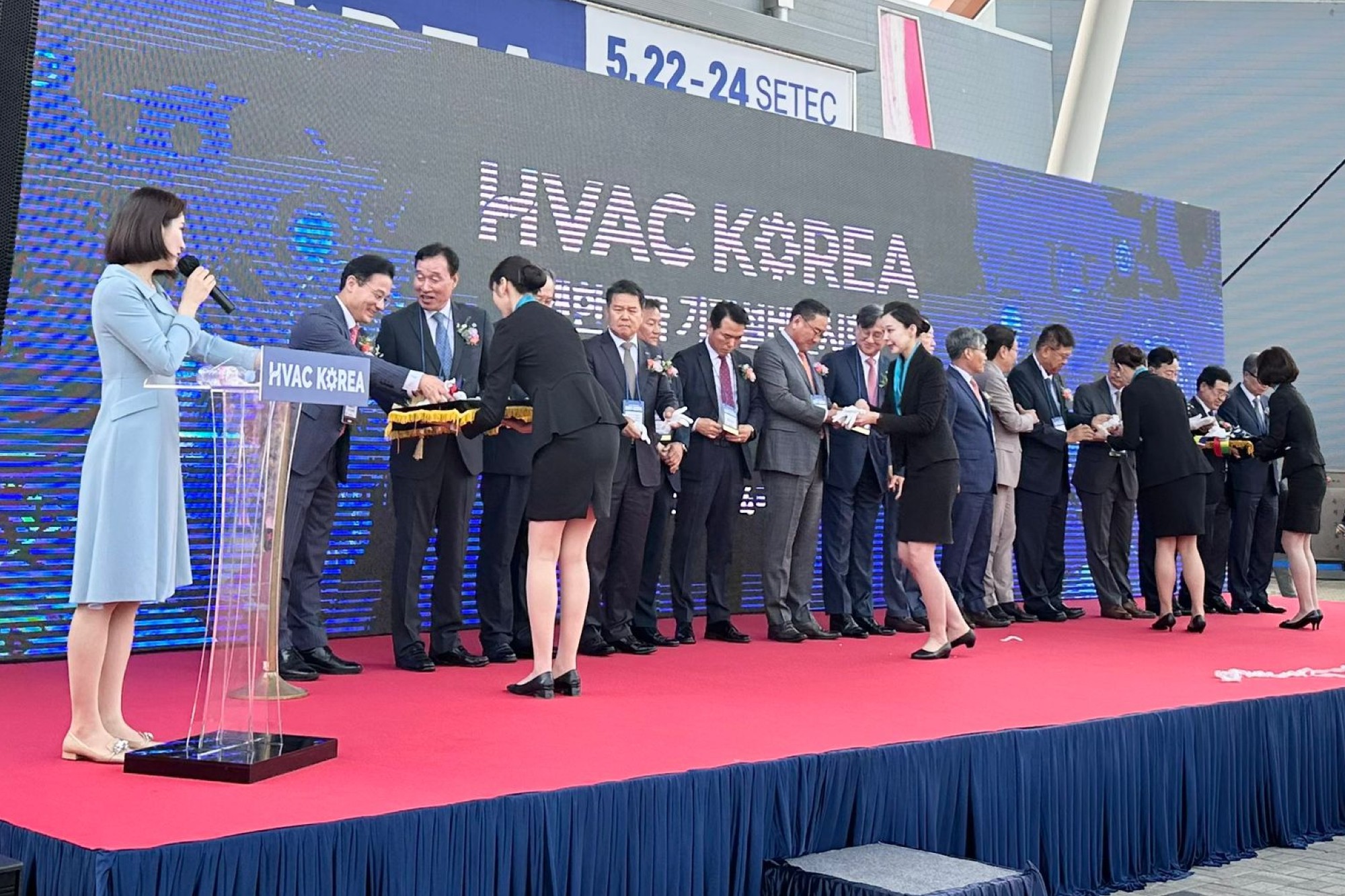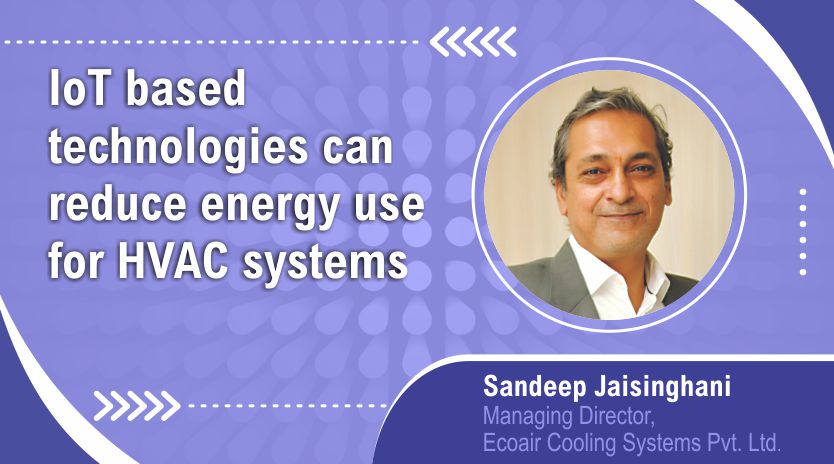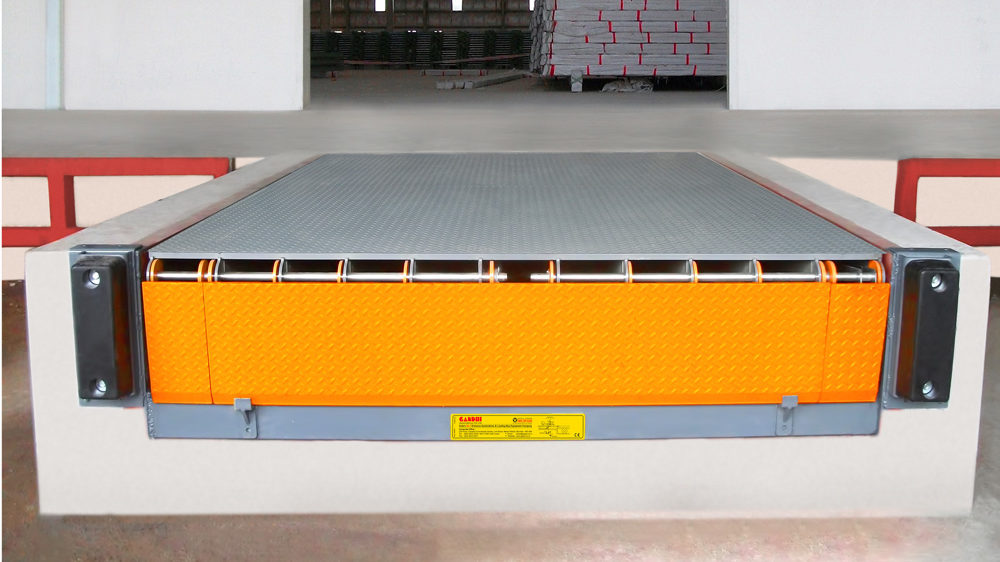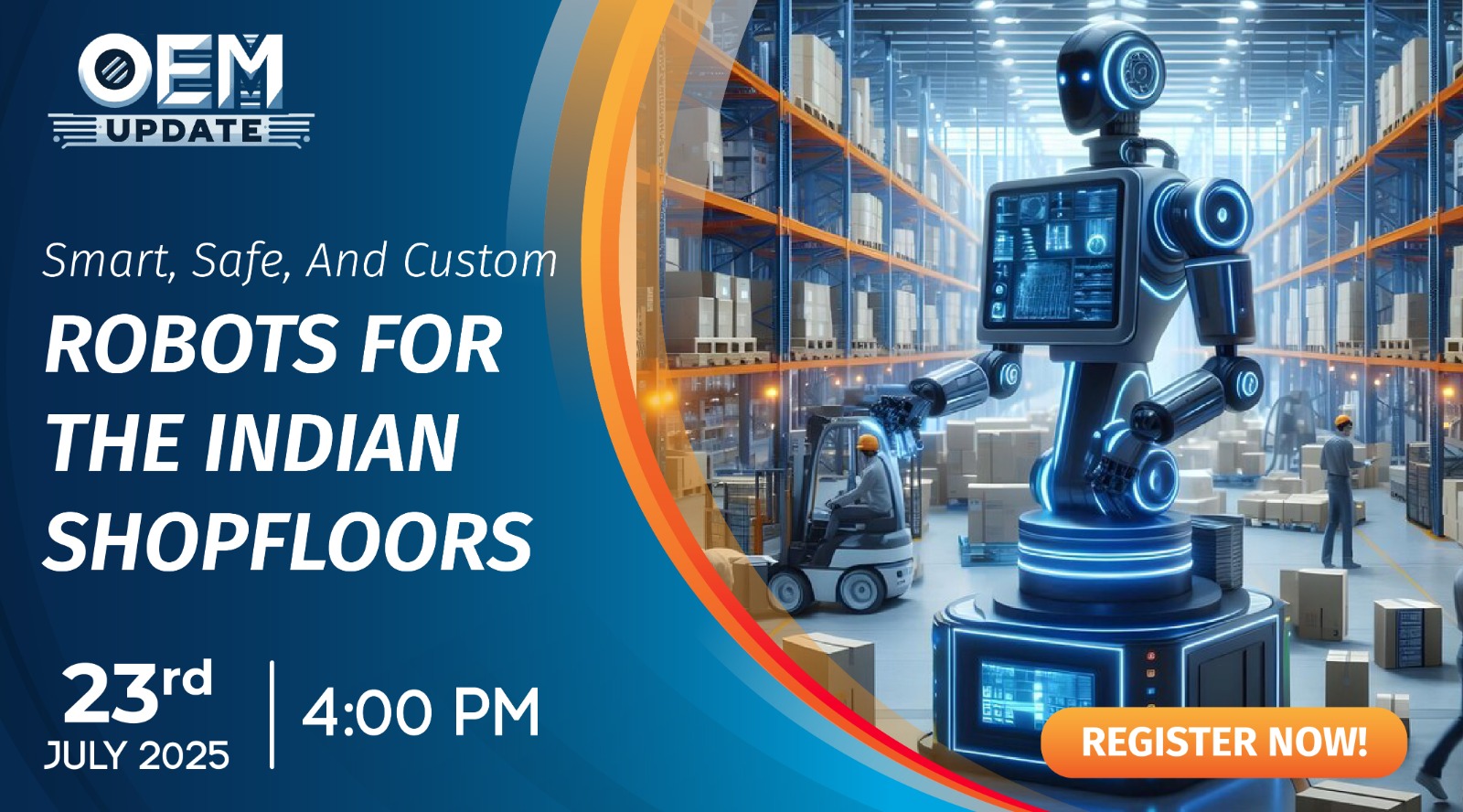A review of energy-efficient HVAC systems at the plant
By OEM Update Editorial January 31, 2024 7:53 pm IST
In the Indian manufacturing scenario, the adoption of the HVAC technology phenomenon is underway along with digitalisation. This feature explores how advanced technologies are shaping sustainability in manufacturing. It is catalysing a shift towards a greener future.
Indian HVAC market is expected to grow to $31,598.6 million by 2030. Some factors drive the demand, such as favourable policies for manufacturers (MSMEs) / PLI schemes, people’s disposable income, and the country’s commercial, industrial, and residential infrastructure investments. This means it will be essential to implement strategies to decarbonise buildings if India is to stay on track with its emissions reduction goals. About 15 percent of global carbon emissions are due to heating and cooling buildings, and global HVAC demand is expected to triple by 2050.
One of the critical strategies for enhancing sustainability in the manufacturing industry is the adoption of energy-efficient HVAC systems. Manufacturing facilities can significantly lower operational costs and carbon footprint by leveraging cutting-edge technologies such as variable speed compressors, energy recovery systems, and sophisticated controllers. These systems optimise energy use and minimise waste, aligning with India’s emissions reduction goals and global sustainability initiatives.
Renewable energy integration
Another crucial aspect of manufacturing is the integration of renewable energy sources into HVAC systems. Manufacturing facilities can minimise their dependency on fossil fuels and reduce greenhouse gas emissions by utilising products seamlessly integrated with solar energy and geothermal heat pumps. This not only promotes environmental responsibility but also helps in mitigating the impact of climate change.
Data analytics and monitoring
Data analytics and monitoring play a crucial role in optimising the performance of HVAC systems in manufacturing facilities. By gathering and analysing data from sensors and controllers, companies can identify inefficiencies, predict maintenance requirements, and provide optimisation suggestions. This proactive approach enhances operational efficiency and contributes to sustainability by reducing energy waste and promoting predictive maintenance to ensure uninterrupted production and extended equipment life.
AL, ML promote energy efficiency.
AI, ML, robotics, and other emerging technologies are necessary for driving the evolution of various Indian sectors, including the HVAC industry, while also advancing sustainability. Integrating these advanced technologies into manufacturing facilities demands planning, efficient resource allocation, and coordination. This process encompasses retrofitting current machinery and systems, adopting new software and hardware solutions, and effectively training the workforce to utilise these cutting-edge technologies.
AI and ML, while promoting energy efficiency, play a role in analysing HVAC system data. Real-time adjustments based on temperature, humidity, occupancy patterns, and weather forecasts result in substantial energy savings and a reduced carbon footprint. Predictive maintenance, enabled by AI and ML, proactively identifies potential issues, minimising downtime and decreasing energy waste.
Sustainability
The sustainability practices are part of environmental, social, and governance (ESG) principles. Ravichandran Purushothaman, India’s president at Danfoss, emphasises the importance of actively engaging with stakeholders to promote the adoption of green energy and reduce the collective carbon footprint. Danfoss has set a target to become carbon neutral in scope 1 and 2 emissions by 2030, aligning with environmental, social, and governance (ESG) principles.
However, as the industry adapts to the demands of the digital world, challenges arise in modernising manufacturing facilities. Key among these challenges is the need to upgrade existing infrastructure and processes to align with the requirements of an evolving digital landscape. This transformation requires investing in new technologies, ensuring at the same time that the workforce is equipped with the necessary skills to thrive in this digital era.
Implementing green technologies
Implementing green technologies, including variable speed compressors and energy recovery systems, presents cost-saving opportunities and reduces environmental impact. Incorporating innovative technologies and prioritising excellence in manufacturing technology further enhances efficiency, traceability, and quality control.
For example, energy-efficient technologies can significantly reduce energy consumption and lower utility costs. Companies can also reduce waste generation and associated disposal costs by optimising resource usage, such as water and raw materials.Furthermore, initiatives focused on eco-friendly manufacturing are frequently accompanied by process optimisation and automation, leading to improved operational efficiency and productivity. The streamlining of workflows, elimination of redundancies, and reduction in downtime collectively contribute to significant cost savings and increased profitability. Creating a more sustainable manufacturing ecosystem is further facilitated by localising supply chains, optimising packaging and transportation, embracing digitalisation, adopting advanced manufacturing technologies, and maintaining a commitment to quality excellence.
Modernise manufacturing
Modernising manufacturing facilities face challenges, particularly for small and medium-sized businesses (SMEs). The capital investment required for advanced machinery, robotics, and digital technologies poses a barrier. Additionally, addressing the need for a skilled workforce, reliable infrastructure, and compliance with complex regulations is crucial for successful implementation.
Implementing modern technology in the HVAC industry requires a skilled workforce capable of operating, maintaining, and troubleshooting advanced machinery and systems. The HVAC sector faces challenges in India due to a need for more competent labour and specialised training. Establishing adequate training programs and initiatives to address this issue and ensure a trained workforce for the modernisation process is essential. The execution of modernisation initiatives in the HVAC industry often depends on infrastructure and connectivity, encompassing reliable power supplies, internet access, and data networks.
The Indian HVAC industry operates within a complex regulatory framework with stringent compliance standards. According to Kishore Patil, Country Head at Trane HVAC Business – India and SAARC Markets, manufacturers aiming to upgrade their facilities encounter challenges adapting to evolving laws, certifications, and requirements related to safety, environmental impact, and energy efficiency. Navigating these regulatory obligations can be formidable for companies seeking to modernise their operations.
The adoption of new technology in manufacturing necessitates significant cultural and procedural shifts. Overcoming resistance, enhancing knowledge, and effective change management are crucial for a successful implementation. Furthermore, integrating modern technology throughout the HVAC supply chain poses challenges related to compatibility and communication among suppliers, manufacturers, and contractors. To surmount these challenges, collaborative efforts among stakeholders, government support, skill development programs, research and development initiatives, and awareness campaigns are essential for promoting modernisation in the HVAC industry.
Tushar Shinde, National HVAC Specialist at Belimo Automation India, highlights the role of customised touch screens, Extended Warehouse Management (EWM) programs, and energy valves in improving productivity on air-conditioned shop floors. According to him, customised touch screens speed up the automation process to improve productivity in air-conditioned shop floors. An Extended Warehouse Management (EWM) program reduces component pickup time and errors. Battery-powered material handling equipment and digital screens on the shop floor help manage material movement.
By embracing energy-efficient systems, integrating renewable energy sources, optimising lifecycle efficiency, leveraging data analytics and monitoring, managing refrigerant transitions, optimising system-level energy efficiency, and embracing electrification, manufacturing facilities can significantly reduce their environmental footprint while enhancing operational efficiency. By adopting these strategies, the manufacturing industry can contribute to India’s emissions reduction goals and global sustainability initiatives, paving the way for a more sustainable future.
===========================
Ravichandran Purushothaman, India President, Danfoss
“We can modernise our manufacturing facilities by investing in developing the necessary capabilities to adapt and thrive in the digital age.”
Kishore Patil, Country Head, Trane HVAC Business – India and SAARC Markets, Trane Technologies.
“Integrating modern technology across the HVAC supply chain challenges compatibility and communication between suppliers, manufacturers, and contractors.”
Tushar Shinde, National HVAC Specialist, Belimo Automation India Pvt. Ltd.
“Customised touch screens speed up the automation process to improve productivity in air-conditioned shop floors.”
Cookie Consent
We use cookies to personalize your experience. By continuing to visit this website you agree to our Terms & Conditions, Privacy Policy and Cookie Policy.







